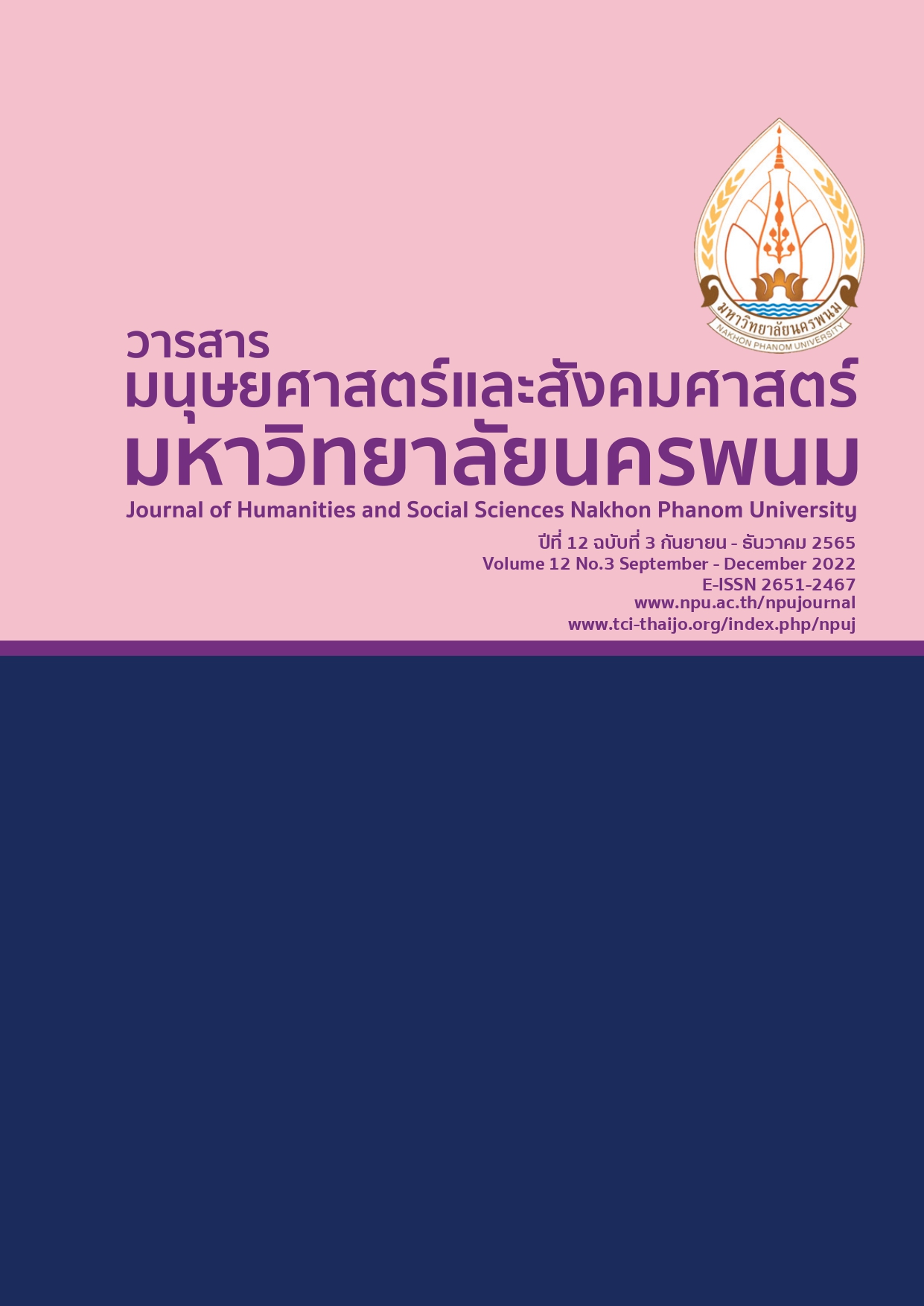Using Roleplay for Developing Social Skills of Matthayomsuksa 4/2 Students Pattananikom School Pattananikom District, Lopburi Province
Main Article Content
Abstract
This study aimed to compare the social skills and the pre-test and post-test achievement using roleplay to develop social skills. The sampling group was 9 Matthayomsuksa 4/2 students of Pattananikom School Pattananikom District, Lopburi Province who enrolled in Citizenship subject in semester 1 of academic year 2019. The sample was purposively selected from the students who had social skills problems. The research instruments were the Citizenship subject lesson plans using roleplay, social skills assessment form, and the achievement essay test. The data were analyzed using mean, standard deviation, and Wilcoxon signed rank test. The results found that 1) The social skill posttest score of 8 students who had social skills problems was higher than the pre-test, 2) the post achievement test of 9 students with social skills problems was higher than the pretest significantly at the .05 level.
Article Details

This work is licensed under a Creative Commons Attribution-NonCommercial-NoDerivatives 4.0 International License.
References
Chaitiang, A. (2010). Lakkān sō̜n (chabap prapprung) [Teaching Principle (Revised edition)]. Bangkok : Odean Store.
Kammanee, T. (2012). Sāt kānsō̜n: ʻongkhwāmrū phư̄a kānčhat krabūankān rīanrū thī mī prasitthiphāp. [Teaching science: the knowledge for managing the efficient learning process]. Bangkok : Chulalongkorn University.
Ladousse, G. P. (1997). Role play Oxford: Oxford University Press. Retrieved August 2012, from https://www.oxfordlea rnersdictionaries.com/definition/american_english/role-play.
Ministry of Education. (2017). Khū mư̄ kānchai laksūt sangkhommasưksā Phō̜.Sō̜. 2008 tām laksūt kǣn klāng kānsưksā naphư̄n thān Phō̜.Sō̜. 2008 [the manual of the curriculum of the social study, 2008 according to the curriculum of the central axis of the basic education, 2008]. Retrieved August 2012, from http://academic. obec.go.th/images/document/1559878925_d_1.pdf.
Phanitphinakul, Y. (1996). Withīkān sō̜n thūapai [General Methods of Teaching]. Bangkok : Wirawitthayaniphon.
Phooviphadawan, S. (2011). Kān yưt phū rīan pen sūnklāng læ kānpramœ̄n tām saphāp čhing [Holding of the student as the center and the evaluation according to the real condition]. Chiang Mai : Saeng Silp Chiang Mai Press.
Phra Khatha Sagaravo, PhraWidesbrommakun and Chirapatr, B. (2018). Kitčhakam kānrīanrū botbāt sommotti rư̄ang mārayāt Thai nakrīan chan matthayommasưksā pī thī sō̜ng rōngrīan thawī Watthanā khēt yān nāwā Krung Thēp Mahā Nakhō̜n [The Learning Activities Throgh Role Plays on Thaimanner of the 2rd Secondary School Stuconty in Secondary in Taweewattana Secondary School, Yannawa District, Bangkok]. Journal of Educational Review Faculty of Education in MCU. 5(2).139-146.
Ronald E. Riggio. (2009). Social Skills lnventory. U.S.A : Consulting Psychologists. https://doi.org/10.1016/ j.leaqua.2011.04.010.
Sinthapanon, S. (2010). Nawattakam kān rīan kānsō̜n phư̄a phatthanā khunnaphāp khō̜ng yaowachon [The innovation of teaching for developing the quality of the youth]. 4th ed. Bangkok : 9119 Technique Printing.
Srikramkru, R. (2009). Theknik kānsō̜n [Teaching techniques]. Bangkok : Ramkhamhaeng University.
Thongphaiboon, K. (2017). Botkhwām: thaksa thāng sangkhom samkhan yāngra [The article: How of the importance of the social skill?]. Bangkok : Manarom Hospital.


